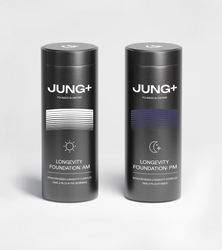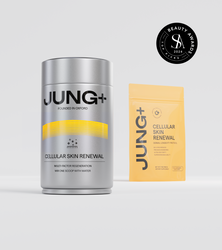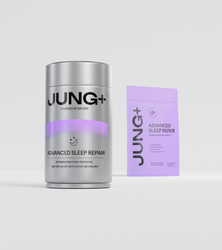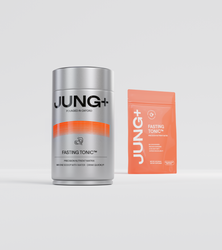Alpha-ketoglutarate (AKG) is rapidly gaining recognition as one of the most promising compounds in longevity research. A naturally occurring molecule in the body, AKG is a critical intermediate in the Krebs cycle, the process that generates cellular energy. While traditionally associated with athletic performance and bodybuilding, the compound’s potential in promoting healthspan and combating aging is now coming to light. Let’s explore the science-backed mechanisms and health benefits of AKG, focusing on its potential to revolutionize the field of longevity.
What is Alpha-Ketoglutarate?
AKG is an endogenous molecule integral to energy production and metabolic function. It is central to the Krebs cycle, helping convert nutrients into usable energy. Beyond its metabolic role, AKG is involved in amino acid synthesis, nitrogen metabolism, and even cellular signaling. However, AKG levels naturally decline with age, correlating with reduced energy levels, impaired cellular function, and other markers of aging.
How Alpha-Ketoglutarate Supports Longevity
Scientific studies on AKG and its calcium salt form (Ca-AKG) have uncovered several mechanisms by which the compound influences longevity:
Mimics Caloric Restriction for Lifespan Extension: A hallmark study demonstrated that AKG supplementation extended lifespan in Caenorhabditis elegans by 50%, primarily by inhibiting ATP synthase and TOR signaling, two key pathways associated with aging. This mimics the effects of caloric restriction, a well-documented intervention for increasing lifespan in various organisms (Chin et al., 2014).
Epigenetic Regulation and DNA Repair: AKG serves as a cofactor for enzymes that regulate DNA and histone methylation. These processes help maintain a youthful epigenome, reducing gene dysregulation, a key driver of aging. By supporting the ten-eleven translocation (TET) enzymes responsible for DNA demethylation, AKG may preserve cellular health and genomic stability (Guo et al., 2022).
Reduction in Systemic Inflammation: Chronic inflammation is a major contributor to age-related decline. Studies in aging mice show that Ca-AKG reduces inflammatory markers and increases IL-10, an anti-inflammatory cytokine, which collectively help delay the onset of frailty and disease (Shahmirzadi et al., 2020).
Enhancement of Mitochondrial Function: AKG fuels mitochondria, the powerhouses of cells. As mitochondrial function declines with age, supplementation with AKG can restore energy production and improve cellular vitality. Enhanced mitochondrial health is also linked to increased resistance to oxidative stress, another hallmark of aging (Niemiec et al., 2011).
Autophagy Activation: AKG promotes autophagy, the body’s natural process of clearing out damaged cells and proteins. By doing so, it helps rejuvenate cellular function and reduce the accumulation of age-related cellular debris (Chin et al., 2014).
Health Benefits Beyond Longevity
While AKG’s anti-aging potential is compelling, the molecule also supports various aspects of health:
Improved Muscle Health and Recovery: AKG stimulates protein synthesis and prevents protein degradation, making it particularly beneficial for maintaining muscle mass as we age. It has also been shown to support recovery following surgery or trauma by reducing nitrogen loss and enhancing tissue repair (Chen et al., 2019).
Enhanced Joint and Bone Health: Studies suggest that AKG reduces inflammation in joints and supports bone density by promoting osteogenesis. This dual action may protect against conditions like osteoarthritis and osteoporosis in aging populations (Ye et al., 2024).
Gut and Immune Health: AKG strengthens the intestinal barrier and reduces gut inflammation, improving overall digestive health. It also modulates immune responses, supporting the body’s defenses against age-related immune decline (Tian et al., 2021).
Energy and Performance Boost: Athletes have long valued AKG for its ability to enhance energy levels and reduce fatigue. By improving mitochondrial function and cellular energy metabolism, AKG may increase stamina and physical performance even in older individuals (Marconi et al., 2004).
Skin Health and Collagen Support: AKG plays a role in collagen synthesis and reduces fibrosis, contributing to firmer, more youthful skin. These properties may delay the visible signs of aging while improving overall skin health (Son et al., 2007).
Mechanisms Underlying Its Benefits
The health benefits of AKG can be attributed to several interconnected mechanisms:
- Metabolic Flexibility: Helps cells switch efficiently between carbohydrate and amino acid metabolism, ensuring consistent energy production.
- Redox Balance: Maintains cellular antioxidant capacity, reducing oxidative damage to tissues.
- Stem Cell Preservation: Supports stem cell health and activity, essential for tissue repair and regeneration.
- Anti-Inflammatory Action: Modulates pathways like NF-κB, mitigating inflammation and its systemic effects.
The Future of AKG in Longevity
Ongoing research continues to uncover the multifaceted role of AKG in promoting healthy aging. From improving mitochondrial efficiency to preserving epigenetic integrity, this compound holds immense promise as a cornerstone of future longevity interventions. Clinical trials in humans, such as those showing reduced biological age with AKG supplementation, are a testament to its potential as a life-enhancing molecule (Demidenko et al., 2021).





















